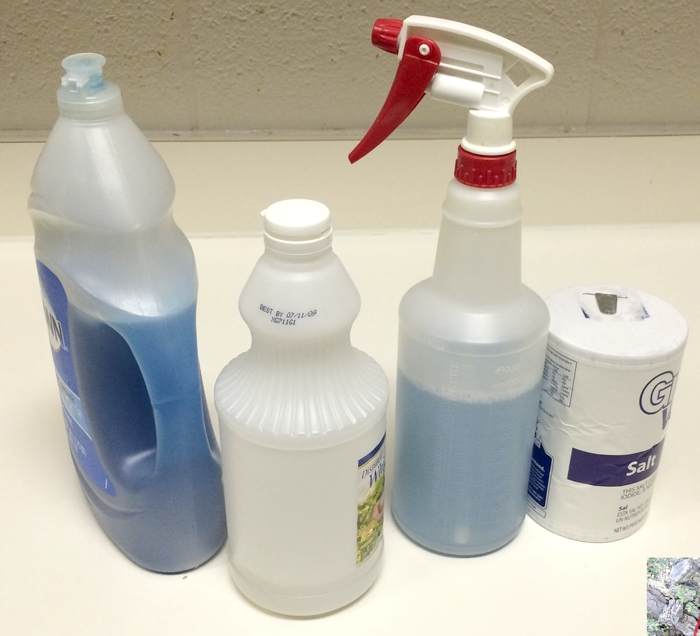Fighting fire ants and getting rid of special waste
Published 12:00 am Friday, October 2, 2015

- Cooperative Extension A mixture of vinegar, dish soap and salt will burn the leaves of weeds, but will not kill the plant. The salt could damage the soil in the area.
By Danelle Cutting
Rowan Cooperative Extension
With all of this rain comes new problems that we did not have this summer. The much-needed rain was a blessing to some but for growers, it came a little too late. As always, if you have questions, please give us a call so we can help others who are suffering with the same issue.
Question: I have fire ants, and I want to know what to do to get rid of them.
Answer: During fall and after a rain, fire ants get to be very active. There are a few things you need to remember: You do not have to stand on the mound to be stung because they forage and can sting even then; and power equipment should be cleaned before going to a different location so you do not spread the ants. To treat fire ants you should do a two-step method to control both the workers and the queen. To get the queen, you need to determine if the workers are actively foraging (out to find food). The easiest method to do this is by using greasy potato chips. Sprinkle around the mound (not on top of the mound). If the ants come out to eat the chips, it is a good time to treat. To do this, I would recommend bait so that they can take it to the queen. When applying the bait, you will also have to apply around the mound and not directly on top. After a few days, it is recommended to treat the mound with a drench. This will get rid of the remaining ants in the mound. There are some newer products that are really good for fire ants, but make sure to read the label before applying any pesticide.
For more information on fire ants, please check out our publication: https://www.ces.ncsu.edu/depts/ent/notes/O&T/lawn/note145/note145.html
Question: I need to dispose of some oil, pesticides and batteries. Where can I get rid of these products for free?
Answer: It is a great that you asked. Rowan County Department of Environmental Management is having another special waste collection event on Wednesday, Oct. 7 from 7 a.m. to 7 p.m. at the Rowan County Recycling Processing Center on 1102 N. Long St. Extension, East Spencer. The event will take prescriptions, computer equipment, tires, oil, washers, dryers, fertilizers, pesticides and much more (household quantities only). The great thing is that you can drive up, and they will unload for free. For more information on what can be recycled, please call Environmental Management at 704-216-8606.
Question: I am trying to control my weeds with a natural home remedy, using vinegar, soap and salt. I have tried it a few times on the weeds in my yard, but all it does is burn the leaves. What am I doing wrong?
Answer: I am always looking to save a buck but sometimes, there are things you should forgo making yourself. This happens to be one of them. This “organic” method started popping up on websites and Pinterest a few years ago. Numerous people called and asked our office how well it performed. I can say without a doubt that the recipes online will not work for you and can be more toxic than applying glyphosate, which is in Roundup. All that the vinegar herbicide does is damage the leaves. It may help kill very small weeds, but you can hang it up on anything large. My other issue with this “herbicide” is that it is not organic and not labeled for controlling weeds. None of the ingredients have a label to control weeds, so if a person has a pesticide license and they apply this herbicide recipe, they are breaking the law and subject to a fine. The last issue on my soap box is when homeowners apply the vinegar herbicide and it doesn’t work. Guess what they do? They continue to apply the product that doesn’t work, and it increases the salt in the soil, which can cause detrimental issues with growing anything else. Yes, the made-up herbicide is somewhat inexpensive but after repeated use and the harm that it does to your soil, it would have been less toxic and less expensive to buy the generic glyphosate. On some lighter news, there are some studies being conducted on the use of vinegar as an herbicide. However, the vinegars in the store have too low a concentration to work, so that also makes the homemade recipe ineffective.
If you have questions concerning fire ants, pesticides or recycling fertilizers, call your local agent, Danelle Cutting, at 704-216-8970.




